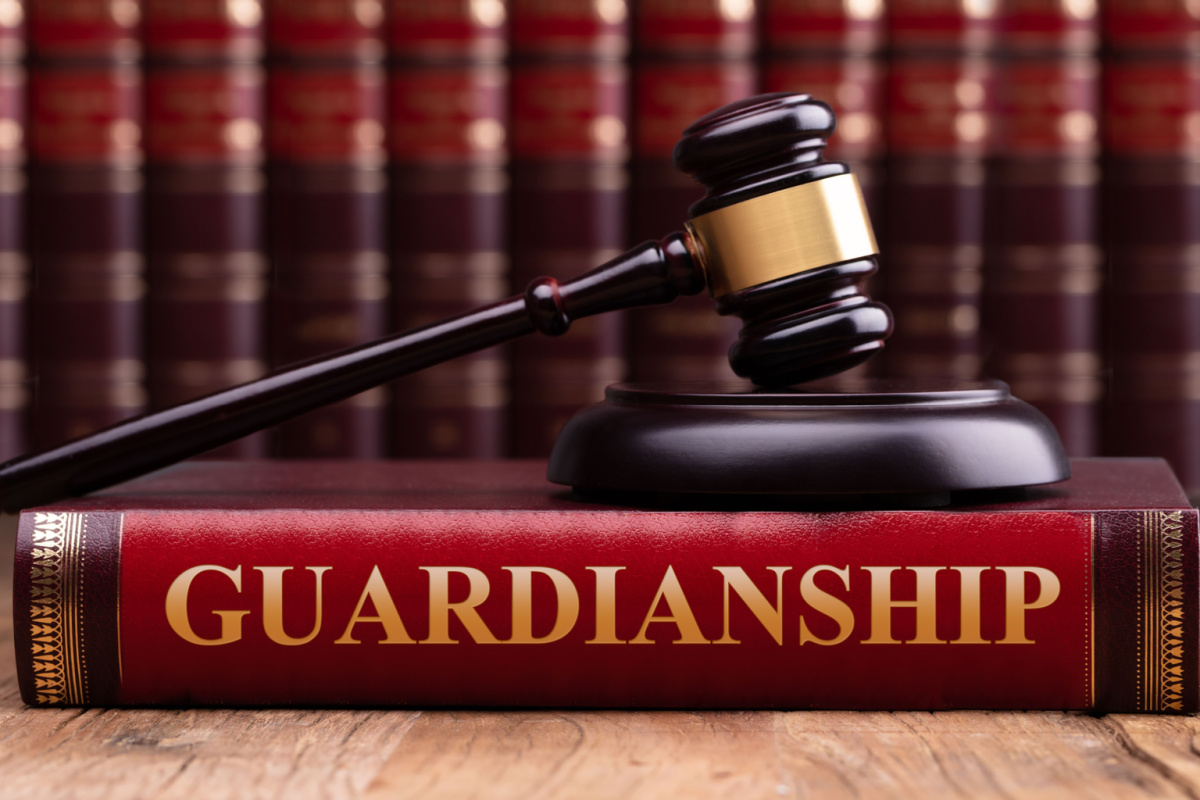A ward is someone placed under the care or protection of a legal guardian. A minor or an incapacitated person could be a ward. The protected individual may be legally incapable of caring or acting for themselves. Here is what you should know about legal guardianship in Louisiana.
Overview of Adult Legal Guardianship in Louisiana
Guardianship is a crucial legal responsibility for any individual. A probate court usually appoints anyone as a legal guardian. Guardianships authorize a court-appointed guardian to make choices for another person (ward). Legal guardianship is the relationship between a ward and a guardian. The guardian cares for the ward, while the ward is entitled to the guardian’s protection.
According to estimates, 1.3 million adults in the U.S. currently live under conservatorship or guardianship. As the data tells us, there are adults who need care, not just minors. A family can choose or appoint a guardian to assist with the person’s financial affairs, medical care, and physical requirements.
Who Is Eligible to Be A Guardian?
A guardian must be 18 years old and capable of providing care and protection to the ward. The following can be the ward’s guardian:
-
Spouse
-
Friend
-
Neighbor
-
Another family member
-
A professional guardian (someone unrelated with special training)
A guardian doesn’t need to be an individual. It may be a private or public corporation or a non-profit agency. Louisiana courts can appoint a public guardian if an individual is incapacitated and the family can’t find a suitable guardian.
When choosing someone as a guardian, the court will first consider those who play a crucial role in the ward’s life. These could be individuals who are both sensitive and aware of the ward’s preferences and needs. The court can appoint co-guardians if two people decide to share guardianship roles.
What Documents Are Needed When Filing for Guardianship?
An individual must undertake a court process to be considered for Louisiana guardianship. The first step they will take is to file a petition. A doctor or other medical personnel will examine the individual who has Louisiana guardianship appointed on their behalf. After that, a report must be sent detailing the care they need. Judges will then assess the document and use it to decide when considering petitions for guardianship in Louisiana.
An individual considering the role of a guardian must maintain and file documents on their assets and that of the ward, including costs for care. The guardianship process can be daunting since an individual is taking responsibility for the welfare of another. Documents are necessary to create a guardianship record because guardians often work closely with their state or county courts.
The following are documents an individual may use when filing for guardianship:
-
Investments and financial statements
-
Trusts, wills, or any other documents on the ward’s inherited assets
-
Documents on medical treatment or care, especially insurance details and invoices
-
Invoices containing educational cost
-
Receipts showing the purchase of necessities like clothes, food, household items, etc.
-
Ledgers and banking statements
-
Previous guardianship accountings, appraisals, and inventories prepared for the court
-
Documents showing valuation and ownership of property the guardianship estate holds
According to Britney Spear’s conservatorship battle, guardianship encompasses a range of harmful conducts. A lawyer will represent the ward in court and ensure any appointed Louisiana guardian is in the ward’s best interest. This will help avoid any future detrimental acts, such as financial exploitation.
How Long Does It Take Before the Court Decides to Grant or Deny Guardianship?
An individual can obtain temporary guardianship quickly. Also, it’s possible to appoint a temporary guardian on the same day of filing a petition. The time needed for the guardianship process if there’s no emergency depends on the following:
-
Availability of a judge
-
Information needed to prepare court papers
-
Existence of complex factors like controversial issues or disagreement among interested persons
-
Type of notice needed to satisfy the constitution under the case circumstances
In most cases, getting the documents and gathering information for the case is time-consuming. Thus, an individual must investigate the case thoroughly before filing since one can only withdraw it with permission from the court.
The court doesn’t permit an individual to file a frivolous court case. After filing a case and investigation later shows that there’s no justification for the case, the petitioning attorney or the petitioner can face serious consequences. After filing, the court can take around 14 days to two months to reach a decision.
What Are the Alternatives to Legal Guardianship?

In most cases, an individual can use other legal means to get the privileges and rights of care over an adult who needs guardianship. Since guardianship involves a profound loss of dignity and freedom, Louisiana laws require that guardianship be imposed after trying and proving less restrictive options.
Here are the alternatives to guardianship:
Power of Attorney
A power of attorney (POA) is the legal authority given to an individual (attorney-in-fact or agent) by the principal. The agent or attorney-in-fact stands in for the principal and makes decisions on business, financial, or other matters. Even after effecting a POA, the principal may not want it to be effective until incapacitated.
Interdiction
Louisiana uses interdiction to refer to a combination of conservatorship and guardianship. Interdiction is suitable for people the court deems unable to handle their financial and personal affairs. During its proceedings, the court will appoint a guardian (curator) and an under-curator to undertake the health and financial matters of the incapacitated individual.
In most cases, the court can appoint a trusted friend or family member as the guardian in an interdiction. It now becomes the responsibility of the appointed person to oversee financial matters, healthcare decisions, and living arrangements for the individual in need of a curator.
Revocable Trust
In Louisiana, the revocable living trust is a popular estate planning trust. A “living” or revocable trust is a written document to determine how a family member, friend, or financial institution handles an asset after the owner dies. The grantor can place assets and properties and use them while still alive together with instructions on sharing after death.
Protective Payee or Representative
An individual is appointed to manage welfare, Veterans Administration, Social Security, Railroad Retirement, or other federal or state entitlement program payments or benefits for the individual.
Conclusion
Guardianship is a system where an individual becomes legally responsible for managing the affairs and caring for an incapacitated adult. It only grants specific responsibilities and rights related to the concerns and care of that person.
Guardianship is a challenging endeavor. Our attorney can help an individual ensure that a suitable guardian is appointed. Contact Stephenson, Chávarri & Dawson, LLC at 504-523-6496 or fill out our online contact form to request an initial consultation.







